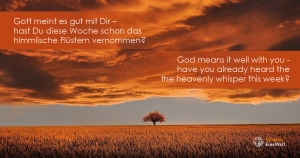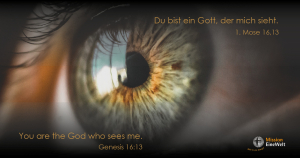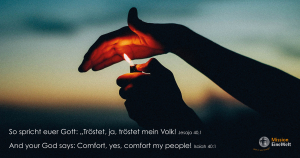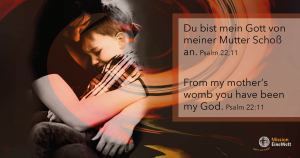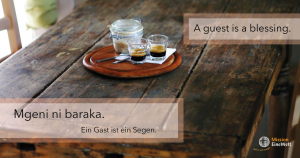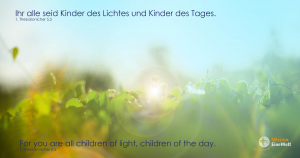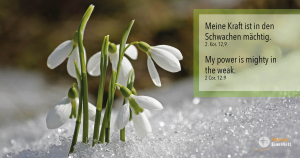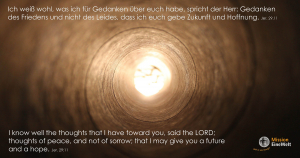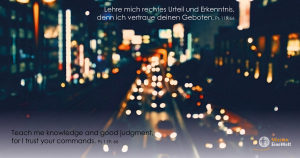Wovon lassen Sie sich ansprechen? Auf „welchem Ohr hören Sie“? Sind Sie empfänglich für feine Zwischentöne? Hören Sie die Nachtigall trapsen?
Brauchen Sie die Spatzen, die es von den Dächern pfeifen?
Was uns bei einer Nachricht „anspringt“, ist eine Frage des Typs und der Vorerfahrung, ob wir etwa eine versteckte negative Botschaft hinter Lob vermuten oder uns vorbehaltlos freuen. Zudem ist es eine Frage der Beziehung: Was ging voraus? Offene, vertrauensvolle, wertschätzende Kommunikation? Oder abwartende, verletzende, mit einem geheimen Ass im Ärmel?
Wir brauchen Offenheit, um uns ansprechen zu lassen – nur so gelingt Kommunikation! Es muss sich etwas entwickeln können. Das braucht Mut, sich auf Unbekanntes einzulassen. Das braucht Vertrauen auf das Gespür des Gegenübers und auf die eigene Widerstandsfähigkeit im Fall von Misslingen. Hilfreich ist es, wenn wir schon erlebt haben, dass uns unser Gegenüber, Freund*in, Eltern oder Gott, grundsätzlich freundlich zugeneigt ist! Das stärkt unser Vertrauen in uns und in die Welt!
Gott meint es gut mit Dir – hast Du diese Woche schon das himmlische Flüstern vernommen?
Andacht: Irina Ose
Illustration: Heike Halbmann
What do you let yourself be attracted to? „Which ear is it that you can listen with“? Are you
receptive to subtle nuances? Can you hear which way the wind is blowing?
Do you need the sparrows that whistle it from the rooftops?
What „jumps out“ at us in a message is a question of what kind of person you are and of previous experience, whether we see a hidden negative message behind praise or whether we are unreservedly pleased. It is also a question of the relationship: What preceded it? Open, trusting, appreciative communication? Or wait-and-see, hurtful, with a secret ace up your sleeve?
We need openness in order to let ourselves be addressed – only in this way can communication succeed! Something must be able to develop. It needs courage to engage with the unknown. It needs trust in the intuition of the other person and in one’s own own resilience in the event of failure. It is helpful if we have already experienced that our counterpart, friend, parent or God, is basically friendly to us! This strengthens our trust in ourselves and in the world!
God means it well with you – have you already heard the the heavenly whisper this week?
Prayer: Irina Ose
Illustration: Heike Halbmann

